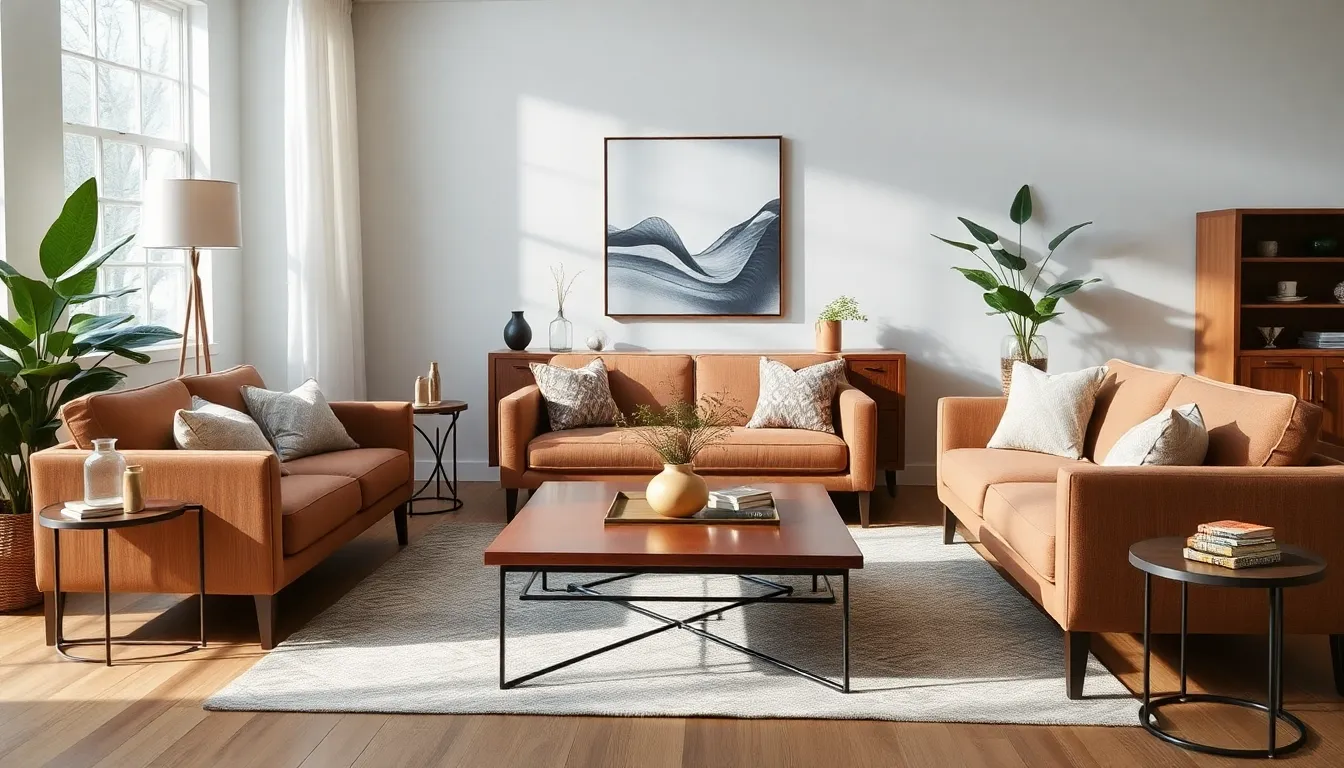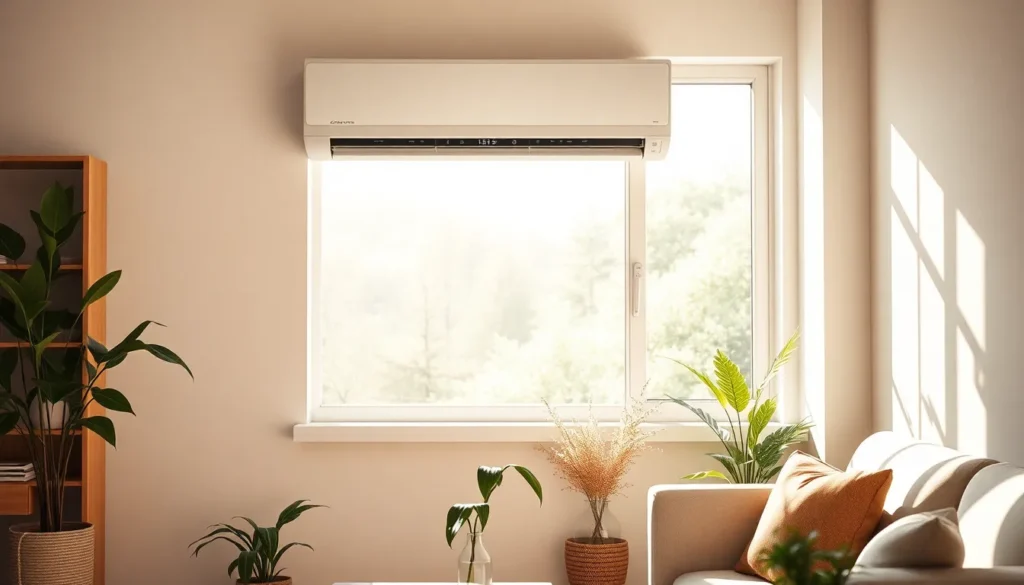When it comes to furnishing a home, quality matters. Shoppers often find themselves asking if West Elm truly delivers on its promise of stylish and durable pieces. Known for its modern designs and commitment to sustainability, West Elm has carved out a niche in the competitive furniture market.
But is the quality of their products worth the investment? With a range of materials and craftsmanship standards, potential buyers need to weigh the pros and cons. This article dives into the quality of West Elm’s offerings, exploring customer experiences and expert opinions to help make an informed decision.
Table of Contents
ToggleOverview of West Elm
West Elm is a prominent furniture and home decor retailer established in 2002. As part of the Williams-Sonoma, Inc. portfolio, it focuses on modern design aesthetics and sustainable practices. The brand emphasizes ethically sourced materials and craftsmanship, targeting environmentally conscious consumers.
West Elm offers a variety of products, including furniture, textiles, and home accessories. Its furniture lines feature styles ranging from mid-century to contemporary, catering to diverse design preferences. The brand collaborates with artisans and designers, creating unique pieces that reflect current trends while honoring traditional craftsmanship.
West Elm’s commitment to sustainability includes initiatives like using non-toxic finishes and responsibly sourced wood. The brand also prioritizes transparency in its supply chain, aiming to reduce environmental impact. These efforts appeal to shoppers seeking quality products with an ethical foundation.
Customer experiences with West Elm vary, highlighting both satisfaction with product aesthetics and concerns regarding durability. Many customers appreciate the modern designs and customization options, while some report issues with product longevity. Expert opinions often underscore the balance between style and practicality, reinforcing the importance of thorough research prior to purchase.
Quality of Materials

West Elm emphasizes the use of high-quality materials in its furniture and home accessories. This focus on material quality enhances the durability and aesthetic appeal of its products.
Types of Materials Used
West Elm utilizes a variety of materials for its offerings, including:
- Wood: The brand often sources solid wood, including oak, walnut, and ash. Each type contributes to the unique look and durability of the furniture.
- Metal: West Elm incorporates metals such as stainless steel and brass in many designs, adding modern flair and structural stability.
- Textiles: Fabrics like organic cotton, linen, and wool are standard in West Elm’s textiles, providing comfort and functionality while ensuring longevity.
- Glass: Used in tables and accent pieces, glass adds elegance and creates an airy feel in living spaces.
These carefully selected materials contribute to both the aesthetic and functional quality of West Elm products.
Sustainability Practices
West Elm adopts practices to foster environmental responsibility. Key initiatives include:
- Sustainable Sourcing: The brand prioritizes responsibly sourced wood and other materials. Its commitment to sustainable forestry ensures minimal environmental impact.
- Non-Toxic Finishes: West Elm uses finishes that are free from harmful chemicals, promoting indoor air quality and safety.
- Recycling and Upcycling: The brand encourages recycling programs and upcycling of old furniture through various initiatives, reducing waste and promoting a circular economy.
These sustainability practices reflect West Elm’s commitment to environmentally friendly values while maintaining high standards of quality in their materials.
Craftsmanship and Design
West Elm prioritizes quality craftsmanship and innovative design in its furniture offerings. The brand’s focus on modern aesthetics aligns with durability, ensuring that products meet high standards.
Manufacturing Process
West Elm emphasizes a meticulous manufacturing process that combines traditional techniques with contemporary practices. The brand sources materials from sustainable suppliers, promoting responsible harvesting of woods like oak and walnut. Skilled artisans construct each piece, using hand-finishing methods to enhance the final product’s durability and aesthetic. West Elm’s furniture undergoes rigorous quality checks to maintain consistency across their collections. The commitment to sustainable practices extends to manufacturing, minimizing environmental impact through energy-efficient processes and reducing waste.
Aesthetic Appeal
West Elm showcases a distinct aesthetic that appeals to modern consumers. The designs often feature clean lines, contemporary silhouettes, and versatile color palettes, making them suitable for various home styles. Collaborations with local artisans and designers infuse unique elements into the products, allowing for personalization. The brand’s commitment to trendsetting aesthetics ensures that furniture pieces not only serve functional purposes but also elevate interior spaces. Textiles like organic cotton and linen enhance the overall appeal, adding texture and warmth to each design.
Customer Feedback and Reviews
Customer feedback on West Elm products is varied, showcasing both praise and criticism. Reviews highlight specific experiences that can help potential buyers assess the brand’s quality.
Positive Experiences
Customers often commend West Elm for its stylish designs and wide selection of contemporary furniture. Many appreciate the quality of materials used, particularly the solid woods like oak and walnut. Shoppers report satisfaction with the customization options, allowing them to tailor items to their individual tastes. Customer service also receives positive notes, with timely responses and assistance during the purchasing process. Some clients highlight that West Elm’s commitment to sustainability resonates with their values, noting the pleasing aesthetic and environmental consciousness of the products.
Common Complaints
Despite many positive reviews, some customers express concerns about durability. Certain complaints mention issues with scratches or wear occurring more quickly than expected. Several buyers encounter challenges with delivery, including delays and damage during transport. Additionally, a few reviews point out that assembly can be cumbersome for specific items, creating frustration for customers. While many enjoy the quality of furnishings, others feel that the prices do not align with product longevity, leading to mixed feelings about overall value received.
Price vs. Quality
West Elm’s pricing strategy reflects its commitment to modern design and quality materials. Average prices range from $200 to $2,500, depending on the product type. Sofas typically start around $1,000, while dining tables can range from $600 to $2,000. In comparison, similar retailers often offer lower prices, but the emphasis on sustainable practices and craftsmanship justifies West Elm’s higher costs.
Material quality significantly influences pricing. West Elm sources durable materials, such as solid wood and high-grade metals, driving the price up. For example, a solid wood bed frame might cost more than a manufactured alternative but offers better longevity and aesthetic appeal. Customers often note that while initial costs appear steep, the investment pays off through durability and style.
Craftsmanship further contributes to the value equation. Each product undergoes rigorous quality checks before reaching consumers. Skilled artisans hand-finish items, ensuring attention to detail and reducing defects. This investment in quality enhances product lifespan, reinforcing West Elm’s position as a trusted brand.
Customer perception also affects the price-quality assessment. Many consumers acknowledge West Elm for its stylish designs and high-quality materials. Reviews emphasize satisfaction with product aesthetics and customization options. However, others express concerns over durability, particularly with upholstery items, indicating a mixed bag regarding perceived value for money.
While West Elm products may carry a higher price point, their quality materials, craftsmanship, and design aesthetics often result in a strong value proposition for consumers seeking lasting and sustainable furniture solutions.
West Elm stands out for its modern designs and commitment to sustainability. Its focus on high-quality materials and craftsmanship often results in stylish and durable furniture. While customer experiences vary with some praising the aesthetic appeal and customization options, others raise concerns about durability and assembly challenges.
The brand’s higher price point reflects its dedication to ethical sourcing and quality, making it a worthwhile investment for those seeking lasting pieces. Ultimately, thorough research and consideration of individual needs can help consumers determine if West Elm aligns with their expectations for quality and design.









